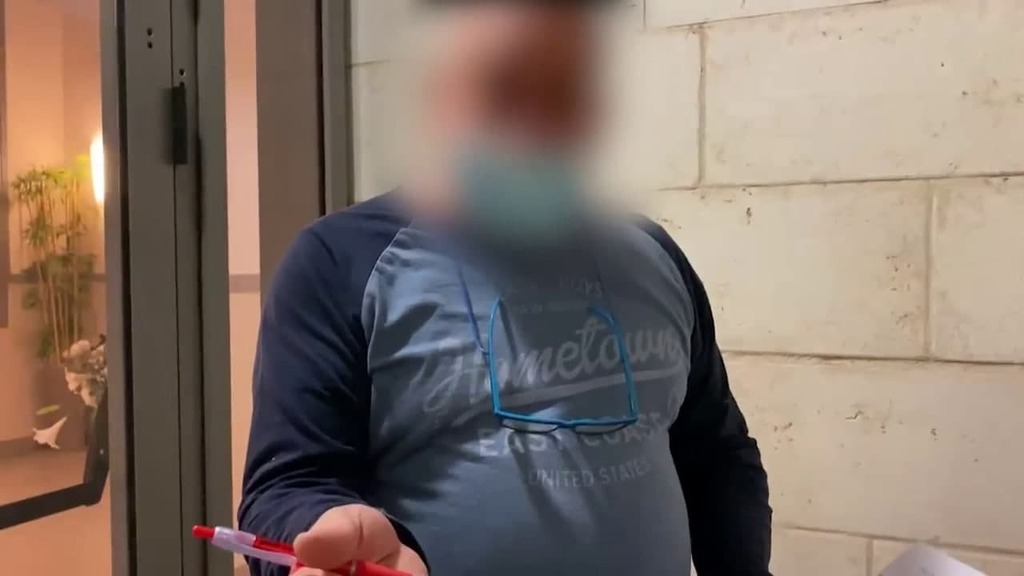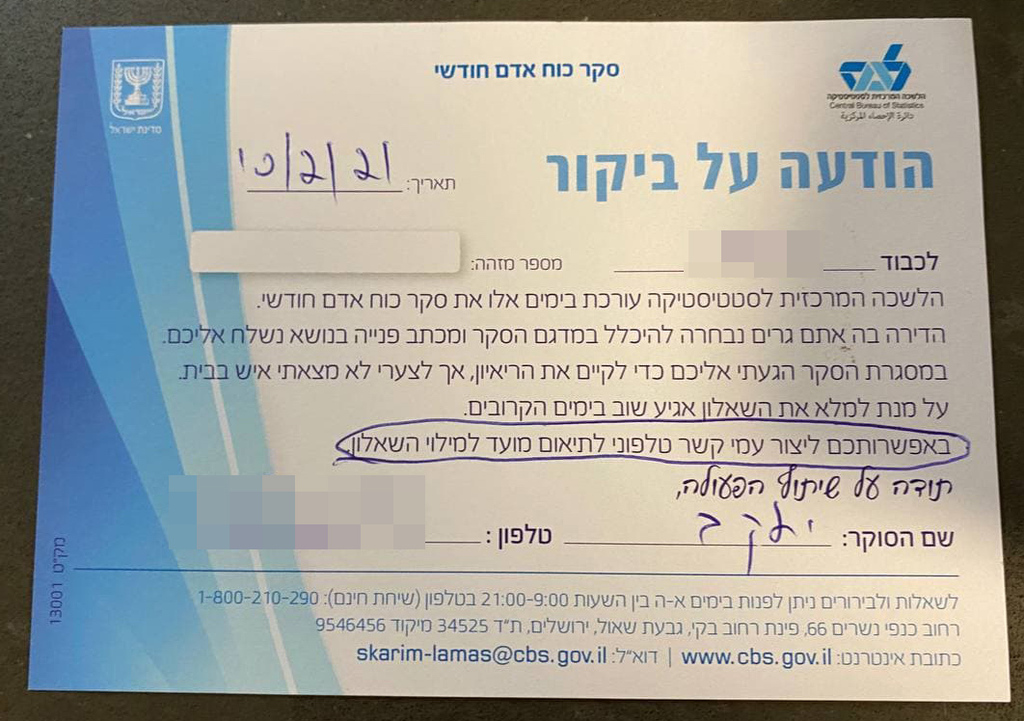Getting your Trinity Audio player ready...
A series of complaints have recently been made against workers for the Central Bureau of Statistics fining and even harassing people for declining to participate in questionnaires - all of which is legal by Israeli law.
On occasion, an employee demanded entry to an elderly woman's home even though she was isolating due to the pandemic.
M., a 70-year-old woman battling several medical issues, received a phone call from a CBS representative, during which she said the caller demanded that she answer a personal questionnaire, telling her that refusal to do so was a criminal offense.
"I angrily told her that I have never committed a criminal offense in my 70 years, but maybe that I would do one now," M. said.
Following her refusal, another CBS employee arrived at her home, ringing the intercom at the entrance to her building and demanding that she allow him in. M.'s children refused and asked him to leave her alone.
One of her children (disclosure: he is a Ynet employee) told the CBS pollster that due to the coronavirus pandemic, his elderly mother, who is part of an at-risk group, could not receive visitors.
The pollster replied that he had the right to enter, holding a letter that he said was addressed to M.
"If you keep talking to me like that, I will come here every day," the pollster told M.'s daughter.
4 View gallery


The Central Bureau of Statistics employee who arrived at M.'s apartment building and would not leave
After a conversation between M.'s family and the CBS employee degenerated into yelling, her children demanded to know the man's name, to which he replied "butt."
"He did not stop ringing on the door. I was afraid, I did not know who it was," M. said.
"I called my son and luckily he and my daughter returned from buying groceries for me."
M.'s daughter said she was shocked and that she did not even want to think what would have happened had her mother been left alone.
"It is scary to think that they send an aggressive bully to elderly people, especially during the pandemic. We have not let anyone into her house over the past year, not even professionals."
The CBS employee who arrived at M.'s home
The arrival of the man at M.'s home came several days after the call from a CBS employee who told her that refusing to participate in the survey was a criminal offense.
"I told them I do not take part in surveys and never answered them, but [the operator] said that I have to take part in it," M. said.
"I asked her if these are personal questions and she said 'yes', so I said I am not interested. The surveyor said the questions include questions about where I work or if I am on furlough, to which I responded that I am 70 and retired."
According to M., the caller kept insisting and threatened with legal action for refusing.
"I told her that I am occupied with my health issues at present and that I already have more on my mind than the survey," she said.
4 View gallery


A letter from CBS saying that the chosen individual is mandated to take part in a survey
M. said that the caller eventually told her her refusal to take part would be passed on and that she would receive another call "in the coming days."
"This feels like an invasion of my privacy and it is enraging," M. said.
"If I say that I do not want to take part, then leave me alone. Answering a survey should be a right, not a duty, and if I am not interested leave me be. To tell me that this refusal is a criminal offense is absurd."
M. said that since the conversation she is very stressed about what could happen.
The original law that established the CBS was legislated during the British Mandate in 1947 and has since then been amended several times, arriving at its current form in 1972.
The law stipulates that the CBS is tasked with collecting, processing, examining and publishing statistical information about the citizens of Israel.
The law does make it mandatory for citizens to cooperate with the CBS and grants the institution power in order to ensure this.
It is a criminal offense for a citizen to refuse to give out information and could receive a NIS 500 fine or even a three-month prison sentence.
The CBS said in response: "At this difficult time, when decisions influence every person's life directly, correct and up-to-date data is very important and is gathered in a systematic way to ensure quality decision-making."
The bureau said that the organization's employees a to explain the need for data collection to the public rather than use its legal muscle.
"Although there is an obligation to answer surveys by law, the CBS interacts with the public in ways to explain the importance of using data in decision-making processes, and this leads to cooperation and high percentages of return," it said.






